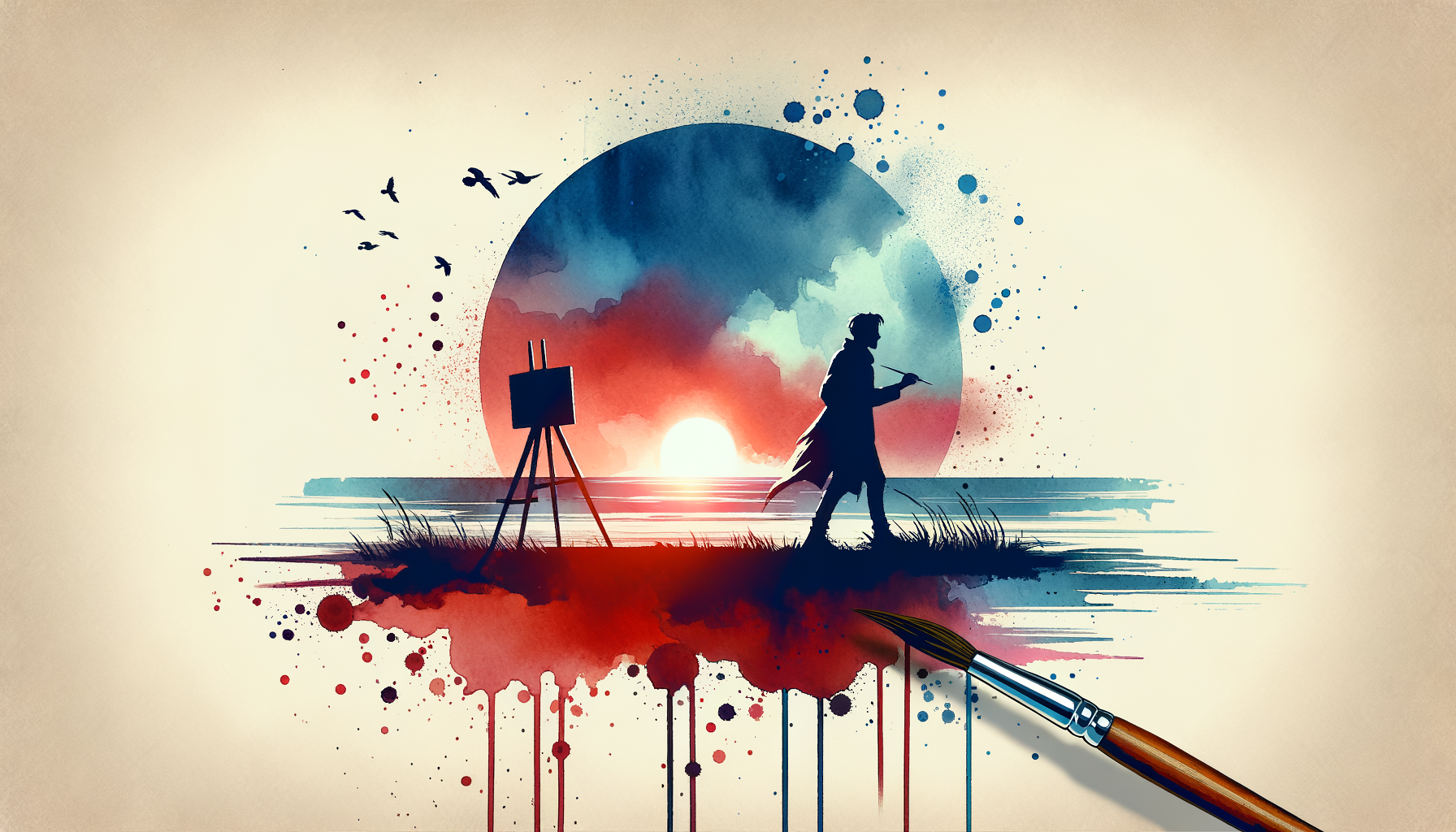What scares me the most? Public vulnerability. Not skydiving or haunted houses or snail-pace traffic on I-16 during a summer storm (though that last one is close). For me, it’s standing in the emotional spotlight, peeling back the carefully constructed layers, and saying, “Here I am, flaws and all. Take it or leave it.” There’s no safety net in that, no do-over button. And yet, I do it anyway. I do it because, contrary to my Southern upbringing, where you’re taught to keep a polite veneer at all costs, I’ve learned that the things we hide are often the things that tether us most deeply to others. Or, as my grandmother used to say with her iced-tea wisdom: “The heart wants what it wants, but it’s your job to speak up and tell it.”
If we’re being honest, vulnerability isn’t really celebrated these days. We curate, we filter, we slap on captions that shout “#livingmybestlife,” and we rarely admit that some nights we’re just trying to keep our heads above the metaphorical swamp water. But the truth is, I’ve learned more about love, connection, and myself by leaning into what scares me the most. Let me tell you how—and maybe encourage you to try a little fear-facing of your own.
The Terror of Honest Conversations
I’ll start with a story. I was fresh out of grad school, reading Carson McCullers by candlelight in a tiny Athens bungalow, and generally believing I could steer clear of romantic entanglements that weren’t neat or manageable. But love isn’t like wine; there’s no sommelier steering you toward the perfect pairing. Instead, I fell for someone who was my polar opposite: bold, loud, and utterly allergic to my tendency to sweep messy truths under the rug.
There was a moment, early on, when he caught my deflection mid-sentence. We’d been talking about our childhoods, and when he asked something specific about mine, I gave a light, genteel response. I don’t even remember what I said, but I remember what he said: “Stop decorating it. Just tell me the real story.”
Decorating it—the nerve. I’d wrapped my answer in so much charming lace that the truth was barely recognizable. For weeks, I noticed how often I skirted full honesty—not because I wanted to lie but because I was scared of revealing something that might invite rejection. Vulnerability, it turned out, wasn’t the fearsome beast. Fear of being unloved for it was.
Here’s what I learned from finally diving headfirst into emotional conversations (and sometimes even sitting through agonizing silences until I found words):
-
Clarity cleans the slate. Once I stopped hiding behind my conversational lace, I realized that knowing someone sees and accepts the unvarnished version of you is an irreplaceable comfort.
-
Vulnerability grows best in light. Yes, being honest can feel like opening the windows in a messy room, but it also airs out what needs to breathe. Letting another person see your fears and your flaws is the only way to fully escape the isolation of keeping them to yourself.
The Panic of Pursuing Passions
I’ve been a writer for as long as I can remember. My first stories were dramatic Southern family sagas scrawled on spiral-bound notebooks, complete with characters who spoke in thick drawls and fainted when summer heat overwhelmed them. Still, when it came to getting serious about writing as a career, I hesitated. “Let’s keep this a hobby,” I told myself. “A backup plan.”
What was I afraid of? Failing, of course. But also succeeding. Because the moment you chase something with your whole heart, you risk finding out whether it’s everything—or not quite what you dreamed. For far too long, I played it safe, writing blog posts here and essays there, careful not to invest too much of myself.
Then came a day in Savannah. I was leading a historic home tour (yes, complete with all my swoony descriptions of Corinthian columns), when an elderly couple struck up a conversation afterward. One complimented how vividly I brought the past to life. The other had the gall to ask, “Well, what are you writing these days?” Their question felt simple but heavy. I didn’t have a good answer—because I hadn’t dared to make more than halfhearted attempts.
When I finally sat down to start the messy, overwhelming process of writing my first book, it felt like showing myself to someone—only, that someone was everyone who’d ever pick up a copy. And just like an honest conversation, it turned out that writing through fear taught me infinitely more than avoiding it.
-
Action tempers fear. You can spend years standing on the precipice of what scares you, or you can leap in and work it out midair. Turns out, fear is worse in anticipation than it is in execution.
-
Rejection and failure are proof you’re trying. Not everyone loved my first novel. Not everyone “got it.” But every critique, misstep, and less-than-stellar review was better than sitting on the sidelines, wondering “what if.”
The Anxiety of Risky Love Moves
Finally, let’s talk about the big scary one: risking your heart. I don’t mean in broad, theoretical terms. I mean the moment you admit you have feelings for someone who doesn’t actually know you do yet. I mean the decision to stay when things get hard instead of bolting for the nearest emotionally patched-up escape plan.
Let me confess something right now: I am not, nor have I ever been, the fearless, leap-into-love type. I’ve watched those swoony rom-com leads who dash through airports with grand proclamations, and I’ve thought, “Sure, but where’s the backup plan?”
But sometimes, life puts you in your own rom-com moment, only without the slick script or knowing audience. My version played out over a New Year’s Eve bonfire at Tybee Island. I stood there with someone I cared for but hadn’t been honest with about how much. All the Southern Gothic writers in me wanted to keep things poetic and implied. Instead, I blurted: “If we try—and if it doesn’t work—it’s still better than wondering, right?”
Spoiler: It worked... but it might not have. And that’s kind of the point.
-
You learn as much from the no’s as the yes’s. Rejection never feels great, but the more you lean into risking it, the more you build a muscle for weathering it.
-
Growth happens in wide-open spaces. Sitting in fear keeps you “safe” but stagnant. Risking your heart, your pride, or your entire ego gives life movement. And movement brings discovery—either about the other person or yourself.
So Why Do It?
Why step into what scares us? Why risk rejection, failure, or emotional exposure? Because human connection—whether it’s with someone you love, with a stranger who loves your words, or even with your own long-buried passions—is the entire core of life. Because bravery multiplies. Because staying safe never gave anyone the stories worth telling or fueled the greatest moments of joy.
If you’re wondering how to start, here’s my advice:
-
Take one small step. Whether it’s trying a new hobby, sharing a truth in a conversation, or chasing an old dream, you don’t have to make huge leaps. You just have to move forward.
-
Remember the odds are in your favor. Chances are, the other person, the world, or the universe will meet your honesty with grace. And sometimes, even if they don’t, the process itself changes you in ways you never saw coming.
I’ll leave you with the words of a woman wiser than I’ll ever be—my grandmother Pearl. She once told me, “Courage doesn’t mean you aren’t afraid. It means you act like tomorrow needs the best of what you’ve got. And honey, it always does.”




















